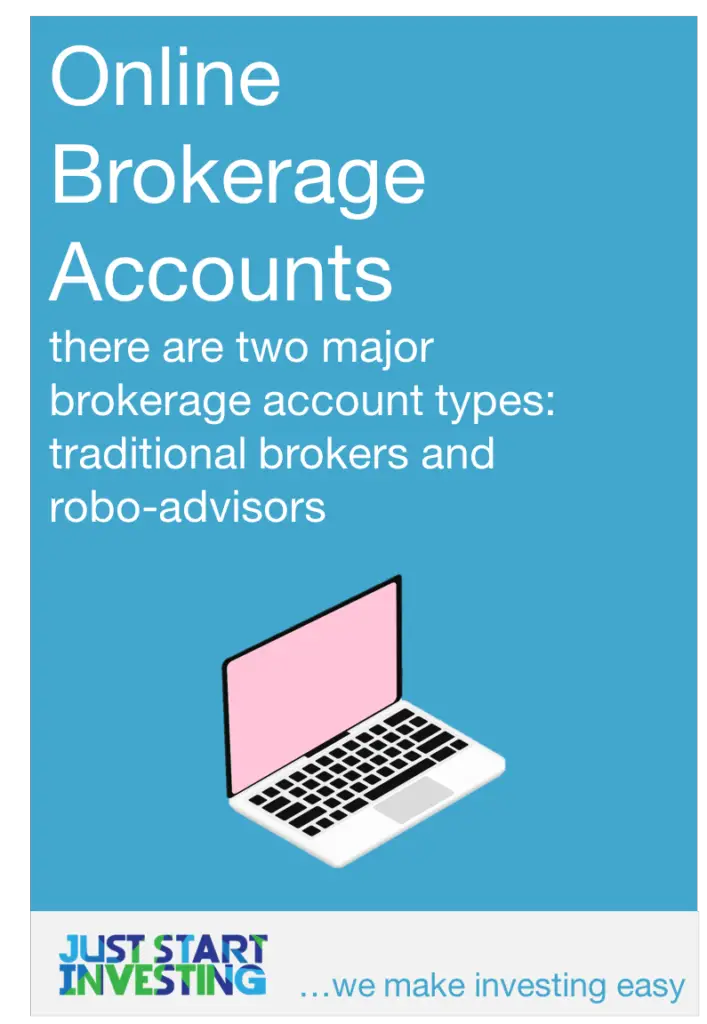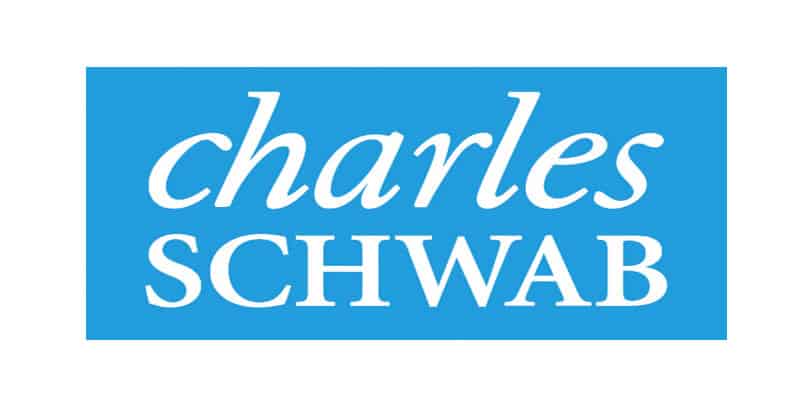Online brokerage accounts allow you to buy and sell investment vehicles easily and quickly. In simple terms, a brokerage account acts as the middle man between you and the market.
To get started with an online brokerage account, there a few steps:
- Select an online broker (which this post will help you do!)
- Open an investment account
- Deposit funds into your account (through a check, online transfer or other method)
- Lastly, invest in various investment vehicles
There are two major types of online brokerage accounts: Traditional Brokers and Robo-Advisors. We’ll dive into the pros and cons of both of them further below. In general, Traditional Brokers are better suited for more active investors while Robo-Advisors are great for new or hands-off investors.
Traditional Brokers
Traditional online brokerage accounts give you control over your investments – you can select exactly which investment vehicles to purchase. Plus, if you choose an online broker like Charles Schwab or Vanguard, fees will be very low – making it easy to set up an efficient lazy portfolio on your own.
There are a few pros and cons to Traditional Online Brokers compared to Robo-Advisors (more details on Robo-Advisors further below):
- Pros:
- Low fees
- 100% control over your investments
- Con:
- Requires slightly more oversight
Two great online brokers are Charles Schwab and Vanguard. Both are reputable, established firms, and they are great choices for a few reasons:
- Best in class fees / expenses
- Wide variety of index funds and ETFs
- Easy to use online platforms
Charles Schwab:
- Fees:
- $0 per online trade Charles Schwab funds, ETFs, and stocks
- ETFs/Index Funds:
- 20+ top tier funds with expense ratios as low as 0.02%
- Other Notes:
- Great customer service
Vanguard:
- Fees:
- $7.00 per trade ($0 for Vanguard funds)
- ETFs/Index Funds:
- 20+ top tier funds with expense ratios as low as 0.04%
- Other Notes:
- Founder of Vanguard, John Bogle, invented the low cost index fund
Other reputable online brokerage accounts:
- TD Ameritrade
- E-Trade
- Fidelity
- For those up in Canada, you can check out some other Canadian Brokerages if interested
- For international readers, here are some additional European Brokerages to explore
Robo-Advisors
Robo-Advisors are online platforms that do 99% of the work for you. In most cases, you start by answering a set of questions before opening an account. Then, the Robo-Advisor recommends an investment strategy and selects investment vehicles for you based on your answers. Robo-Advisors are relatively new platforms, but are gaining in popularity due to their ease of use.
There are a few pros and cons compared to traditional online brokerage accounts:
- Pros:
- Easy to use
- Tax loss harvesting software (in most cases will save you money in the long run)
- Automatically rebalances portfolio
- Con:
- Slightly more expensive
Two great Robo-Advisors are Betterment and Wealthfront. They are both great choices and leaders in the space for a couple reasons:
- Best in class tax loss harvesting software
- Simple, easy to use platforms
- Low management fees compared to the competition (0.25%)
You’ll notice the similarities between the two offerings below.
Betterment:
- Fees:
- 0.25% management fee (plus the expense ratio of investments)
- ETFs/Index Funds:
- Variety of Vanguard, Schwab and other index funds and ETFs
- Other Notes:
- Provides tax loss harvesting
Get our full guide on how to start investing with Betterment here and our full review of Betterment here.
Wealthfront:
- Fees:
- 0.25% management fee (plus expense ratio of investments)
- ETFs/Index Funds:
- Variety of Vanguard, Schwab and other index funds and ETFs
- Other Notes:
- Provides tax loss harvesting
Additional Robo-Advisors Include:
- Blooom – a robo-advisor for your 401(k)!
- SoFi
- Charles Schwab Intelligent Advisory (yes, they have a robo-advisor platform as well)
- M1 Finance

Ready to start investing today now that you know about online brokerage accounts? Start now and do it yourself.




